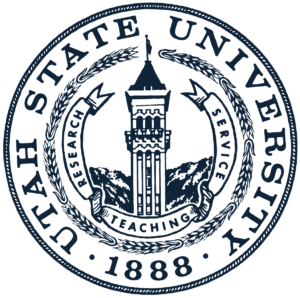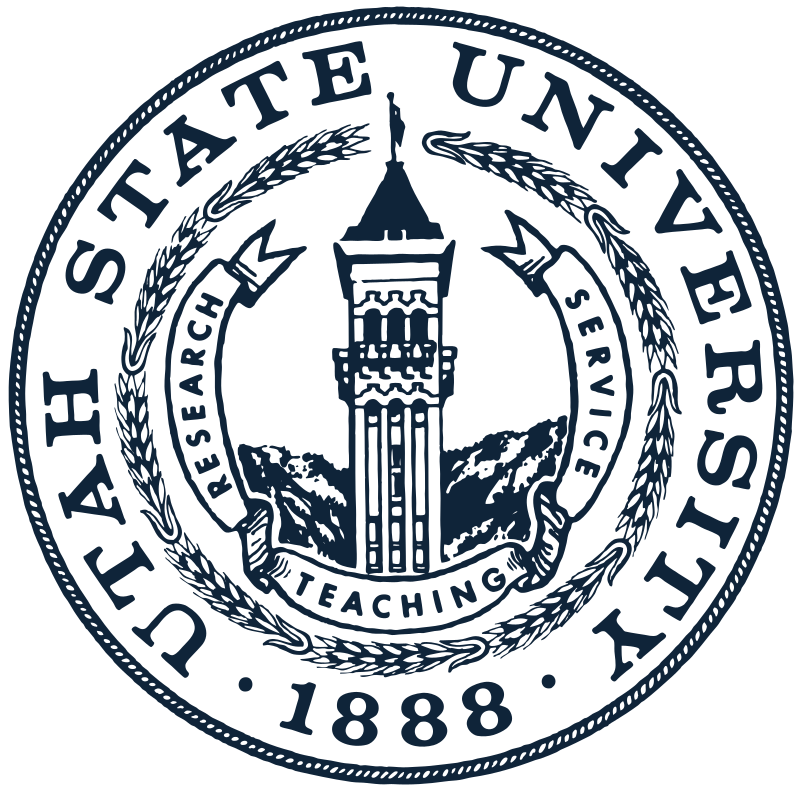
Degree Programs Available at Utah State University
Utah State University appears in our ranking of the 50 Most Affordable Online Degree Programs For In-State Students.
Often, a college degree is necessary to advance in a career. It is also the best way to increase your earning potential. College graduates also report that they are more satisfied in their jobs than those who only have a high school diploma. Utah State University offers several unique degree options that are available both online and on campus.
Featured Programs
Utah State University has seven degree-granting colleges as well as the Huntsman School of Business. They offer a wide range of unique undergraduate and graduate degree programs.
The colleges and schools at Utah State University include:
- Agriculture and Applied Sciences
- Caine College of the Arts
- Emma Eccles Jones School of Education & Human Services
- Engineering
- Humanities and Social Sciences
- Huntsman School of Business
- Natural Resources
- Science
The Emma Eccles Jones School of Education and Human Services offers a BA or BS in Communicative Disorders and Deaf Education. The program is offered on campus and online. There may be internship and practicum requirements that must be completed in Utah. The Bachelor of Arts program requires students to gain proficiency in one or more foreign languages. The Bachelor of Science program focuses more on science and math requirements. The program provides students with methods to help those who have difficulty:
- communicating
- learning to communicate
- feeding
- swallowing
This may include infants with feeding disorders or those with problems with:
- speech
- language
- hearing
- literacy development
Students learn to help those who stutter, have voice disorders, or are dealing with language and speech issues after neurological disease or stroke.
The College of Engineering offers a Master of Science in Irrigation Engineering that is recognized as one of the best programs of its kind in the nation. The program provides an understanding of integrated water management, including:
- the use of treated wastewater in irrigation
- conjunctive use of surface and groundwater
- water policy
- training tools for improving water management
- other factors related to irrigation
Students also gain an understanding of crop water requirements including:
- evapotranspiration
- instrumentation
- lysimeter measurements
Also reviewed are:
- Irrigation system operation and maintenance
- remote sensing
- spatial apps
- on-farm irrigation methods
The program is available at the Logan campus only.
The College of Humanities and Social Sciences offers a Ph.D. in Sociology that is available at the Logan campus. The program includes methods for combining basic knowledge of sociology with social theory and research methods. Students may specialize their degree in:
- Climate Adaption Science
- Demography
- Environment and Community
- Social Inequality
The program has a focus on environmental and natural resource sociology, collaborating with:
- natural resources
- water engineering
- other physical and social sciences
About Utah State University
In 1888, the Agricultural College of Utah opened as part of the Morrill Land-Grant Colleges Act of 1862. Under this Act, the government provided funding in the form of land grants. These allowed them to establish an institute of higher learning. From the beginning, the school accepted women, with the first student enrolled being a 14-year old girl.
Utah legislators attempted to merge the college with the University of Utah. They believed that the agricultural school would slow the growth of the state university. That measure failed. Another bill limited the agricultural school to programs related to domestic science, agriculture and mechanical arts. It led to the elimination of many popular programs despite the fact the Morrill Act required those programs.
The Utah Cooperative Extension Service, founded in 1914, brought research-based knowledge to farmers around the state as part of the Morrill Act. During World War I, the campus temporarily became a military institution. In 1927, all curriculum restrictions were lifted. In 1930, the school became the Utah State Agricultural College. In 1957, the school became Utah State University.
Today, there are almost 28,000 students enrolled at Utah State University. Washington Monthly ranks the school fifth in its National Universities Ranking. US News & World Report ranks it the fifth best online bachelor’s programs in the country.
Utah State University Accreditation Details
Utah State University is accredited by the Northwest Commission on Colleges and Universities. Through accreditation, the school is able to confirm that programs offered are of the highest quality. It also allows students to apply for and receive federal student aid. Programs at the school are also accredited by the following industry-specific organizations:
- Accrediting Board of Engineering and Technology
- American Association of Family and Consumer Sciences
- American Association of Museums
- American Chemistry Society
- American Music Therapy Association
- American Political Science Association
- American Psychological Association
- Council on Academic Accreditation of the American Speech-Language-Hearing Association
- Association to Advance College Schools of Business
- Commission on Accreditation for Dietetics Education
- Commission on Accreditation for Marriage and Family Therapy Education
- Commission on English Language Program Accreditation
- Council on Aviation Accreditation for Aviation Technology
- Council for Interior Design Accreditation
- Council of Social Work Educators
- Council on Rehabilitation Education
- Council on the Education of the Deaf; Institute of Food Technologists
- Landscape Architecture and Accreditation Board
- National Association of School Psychologists
- National Association of Schools of Music
- National Association of Schools of Theater
- National Council for Accreditation of Teacher Education
- National Council on Family Relations
- National Institute of Food and Agriculture
- National League of Nursing Accrediting Commission
- National Recreation and Park Association
- Society of American Foresters
- Society of Range Management
- Teaching Education Accreditation Council
Utah State University Admission Requirements
Applicants to the Bachelor of Science or Bachelor of Arts program in Communicative Disorders and Deaf Education must have a minimum 3.0 GPA. They must provide official high school transcripts as well as official SAT or ACT scores.
Applicants to the Master of Science in Irrigation Engineering who do not have a civil or environmental engineering background may need to complete additional undergraduate courses as a graduate student. They must provide official transcripts from all colleges and universities attended as well as official GRE scores. They must score above the 40th percentile on the GRE and must have a GPA of 3.0 or higher in the last 60 semester or 90 quarter credits. Three contacts for letters of recommendation must also be provided.
Applicants to the Ph.D. in Sociology program must provide official transcripts from all colleges and universities attended. The program is designed for those with a background in sociology or social science. Those who have a different background must have completed sociology classes related to:
- methods
- theory
- statistics
They must also have adequate exposure to the discipline. They must have a GPA of 3.0. They must score above the 40th percentile on the GRE. Three contacts for letters of recommendation must be provided along with a letter of intent.
Utah State University Tuition and Financial Aid
Undergraduate tuition at Utah State University is $950.88 per credit hour for Utah residents and $2,249.16 per credit hour for non-residents. Graduate tuition is $1,056 per credit hour for residents and $2,415.29 for non-residents.
To qualify for financial aid, students must complete the Free Application for Federal Student Aid (FAFSA). All students should complete the FAFSA regardless of income. Some assistance is merit-based rather than need-based. Students may be offered grants and scholarships which do not have to be repaid after graduation. If they attend on campus, students may also be offered:
- work-study
- assistantships
- fellowships
Utah State University has grown from a rural college in the Utah mountains to a thriving research university, providing students with a wide range of academic opportunities.
Related Resources:
10 Best Online Humanitarian Degree Programs
Top 15 Bachelor’s in Economics Online
